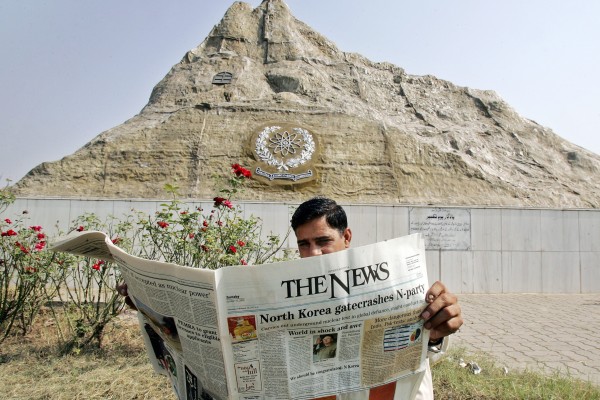
Admittedly, prior to the detection of A.Q Khan Network, nuclear materials security in Pakistan was on the loose especially in the context of nuclear weapons program. But, certainly it is not the case now. Pakistan has travelled a long way in terms of strengthening and upgrading nuclear safety and security apparatus — a fact even many Indian strategic experts concede. The legislative and institutional response by Pakistan to ensure nuclear materials security both in civilian and military domains is believed to be unprecedented in the post A.Q Khan Episode. So, at official level, Pakistan claims to have an impeccable record in nuclear materials security.
I think it’s unnecessary to outline here those measures that Pakistan has taken to cope with international apprehensions and concerns as they are well documented and are increasingly debated in nuclear literature over the last few years. The important question that needs to be examined is: why still concerns are being raised to target Pakistan’s nuclear materials security capacity? Let me try to find the answer in an academic way.
Pakistan as a nation-state is in jeopardy, it is gradually withering away — mired in countless problems. Maximalist approach of the state has virtually converted it into a hybrid-theocracy. And sadly, the trajectory is continuing on the way towards a complete theocracy. The policy of using sub-conventional forces for strategic purposes is now backfiring ruthlessly and resulting in intense radicalization of the society. The United States–Pakistan security establishment–Jihadi organizations’ security romance has made Pakistan a breeding place for militants. One may disagree, but all this has made Pakistani society a highly emotional and religiously divided, so the element of logic and fact is scarce nowadays.
Currently, the transnational terrorists, particularly the TTP, are carrying out savage attacks across the country with a sense of impunity. To make things worse, the terrorists are hell-bent to impose their nefarious worldview – a retrogressive ideology. Arguably, the TTP is emerging as a stakeholder in the backdrop of recent internal security dynamics. It wants to scuttle the whole country through decimating the writ of the state, so that it can dictate conditions on internal law and order decisions, foreign policy issues, role of women in the society, and media policies. The state’s sheer incapacity or perhaps deliberate unwillingness to deal with these militants has also resulted in Afghan Taliban using North Waziristan as “strategic depth” to wage holy war against Kabul regime and NATO forces.
If we recap the decades-long tumultuous situation in Pakistan, we see even the important political figures are targeted. There were several assassination attempts on former President Pervez Musharraf; former Prime Minister Benazir Bhutto, Governor Punjab Salman Taseer were killed by religious zealots and many more attacks were unleashed on people from all walks of life. Likewise, the security forces have to bear the losses of hundreds and thousands of fine soldiers. The son of Governor Taseer and the son of former Prime Minister Yosuf Raza Gailani are kidnapped by TTP for ransom or prisoners’ swap purposes.
So, the eroding institutional capacity and chaotic internal security environment of Pakistan is used by various circles very conveniently to conjure up many scenarios such as terrorists getting hold on Pakistani nukes for their apocalyptic objectives. It is next to impossible that terrorist will get hands on Pakistani nuclear weapons; however, few peculiar threats cannot be ruled out with regards to nuclear materials security.
It is very difficult for terrorists to permeate, sabotage or subvert Pakistani nuclear materials security by means of a coordinated attack because of multi-layered fool proof security system. Nevertheless, they may gain access to sensitive materials through insider help. It is a fact that many scientists, engineers and security personnel, though from low cadres, have been sympathizers to many militant organizations. After all these people are from the same highly religious society that is contributing suicide bombers and fresh recruits to TTP. Certainly, the TTP and Al-Qaida will aim at nuclear materials to be used as bargaining chip with the state of Pakistan, perhaps for prisoners’ release and financial objectives. They may also use nuclear materials to terrorize the public.
Moreover, in the presence of terrorists at every nook and corner of the country, during crisis/conflict/war times the nuclear materials security may pose a daunting challenge to already fragile state. The war-fighting tactical nuclear weapons, once they are handed over to the strategic forces in a war theater, may be manipulated by the militants.
Overall, nuclear materials security is a global problem and needed global responses. Perhaps, there is an urgent need of a well-organized global system to address nuclear materials security.
***
Image: Aamir Qureshi-AFP, Getty